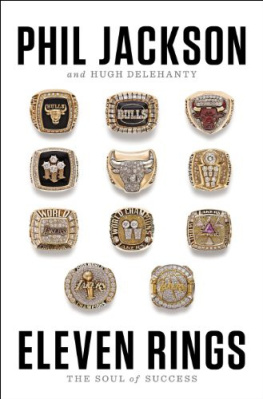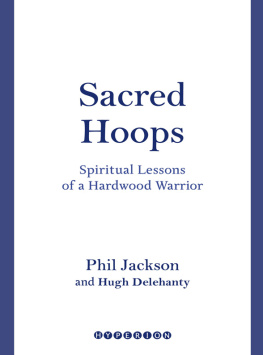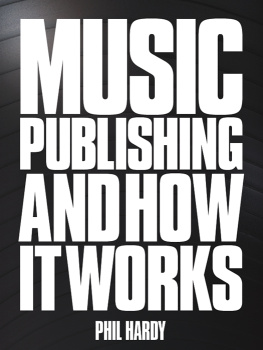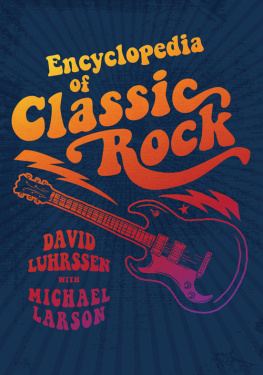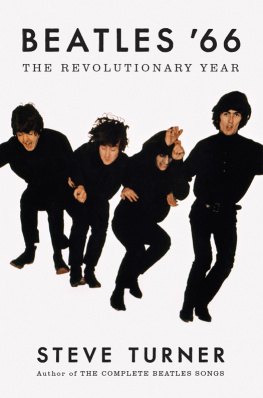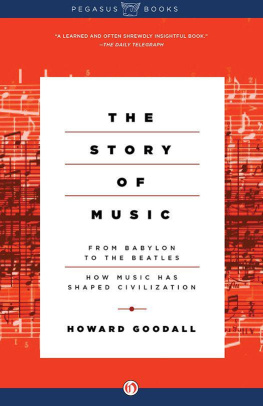Within You, Without You
A Sociological, Cultural and Musical History of Great Britain, 1945 1967
Phil Jackson
Austin Macauley Publishers
2020-11-30
Within You, Without You
About the Author
Phil Jacksons professional background is of a teacher and dyslexia tutor. He has had a lifelong passion for music (listening, playing and reviewing) and literature, especially science fiction. It has taken him a long time to realise his life-long ambition to become a professional writer, although he has been writing and reviewing for magazines all over the world for twenty years, principally Acid Dragon magazine, published in Lyon. During that time, he has had the privilege of reviewing and interviewing many famous players in the music industry. Happily, the coalescence of his interest in music, sociology, history and writing has finally found its ultimate expression in Within You, Without You. Phil lives in rural Angus, Scotland, with his wife, Maureen, and his son, Benedict.
Dedication
This book is dedicated to the countless musicians and writers who have
inspired me over the years.
Copyright Information
Phil Jackson (2020)
The right of Phil Jackson to be identified as author of this work has been asserted by the author in accordance with section 77 and 78 of the Copyright, Designs and Patents Act 1988.
All rights reserved. No part of this publication may be reproduced, stored in a retrieval system or transmitted in any form or by any means, electronic, mechanical, photocopying, recording or otherwise, without the prior permission of the publishers.
Any person who commits any unauthorised act in relation to this publication may be liable to criminal prosecution and civil claims for damages.
All of the events in this memoir are true to the best of authors memory. The views expressed in this memoir are solely those of the author.
A CIP catalogue record for this title is available from the British Library.
ISBN 9781788789363 (Paperback)
ISBN 9781788789370 (Hardback)
ISBN 9781528956444 (ePub e-book)
www.austinmacauley.com
First Published (2020)
Austin Macauley Publishers Ltd
25 Canada Square
Canary Wharf
London
E14 5LQ
Acknowledgement
I would like to acknowledge the help given by the numerous artists I have interviewed and the labels whose music I have reviewed over the past decades, especially Gary Brooker, Dave Greenslade and Wally Waller, for agreeing to provide some commentary on the book and Vicky and Mark Powell of the Esoteric label whose reissues have proved illuminating in providing a complete story of popular music in the 1960s. I am deeply indebted to the various magazines, books and websites to which I have subscribed and have done my best to give due reference to them. My special thanks go to my friend, Thierry Sportouche, the editor of Acid Dragon magazine, for publishing thousands of my reviews, articles and interviews over more than two decades. Without all of these people, and more, this book would not have been possible.
Overture
The explicit aim of this book is to consider Sergeant Peppers Lonely Hearts Club Band as a high water mark in pop/rock music, and to examine its impact and influence in the context of the times in which it was conceived. Meanwhile, a certain Jimi Hendrix was crossing the Atlantic Ocean in the opposite direction to the Brit pop invasion which had ignited the States in 1964 to impress his own lasting legacy on a cultural scene that was flowing with idealism and creativity. The result was Are You Experienced?, Axis: Bold as Love which were to have a parallel impact to Sergeant Peppers, The Magical Mystery Tour and, in 1968, The Beatles known as The White Album.
Why Sergeant Pepper?
Because it is consistently and persistently regarded as the yardstick by which all other albums are measured, illogical as this might seem, as critical analysis and opinion polls, which it must be remembered are just that, peoples opinions, regularly confirm. I might add also that this position is unlikely to change.
As Gerard DeGroot put it the reason the Beatles phenomenon has not been repeated is perhaps that the industry today could never accommodate a band so creative, autonomous and progressive.(1)
This is not a book about the Beatles. Nor is it a book about Jimi Hendrix. Nor is it a book exclusively about music although a lifelong passion for music is the motivating force behind it.
Music, although a sublime art form existing for itself and within itself, cannot exist within a vacuum. The context is all important for it is the thoughts, words and events of the past and the present, and predictions of the future that inform and inspire the music. This is why I outline significant historical events during the lifetimes of the groups main protagonists. While some of the post-war years will only be dimly remembered or not even recalled at all, it is important to consider the historical, social and cultural events that helped shape attitudes and artistic responses. Our nadir year of 1967 is quite arbitrary in many ways but there is a good reason for its selection.
1967 was a prolific year for The Beatles and music in general, the year not only of Sergeant Pepper but also of The Doors debut album (January), The Velvet Underground and Nicos Andy Warhol, and Jefferson Airplanes Surrealistic Pillow (March); The Jimi Hendrixs Experiences Are You Experienced? (May); and, post Sergeant Pepper, Pink Floyds Piper at the Gates of Dawn (August), Loves Forever Changes, Creams Disraeli Gears (November) and Songs of Leonard Cohen (December). As we will discover, these albums were merely the tip of the iceberg. There was also The Magical Mystery Tour to take the bus towards 1968 and new musical horizons.
A romanticised view of Sergeant Pepper does not reflect the reality of its anfractuous creation. Not only was there an awful lot of other great music being conceived by other artists but also, the group considered by many to be the leaders and trendsetters, was by no means finished. Even before the new year bells heralded the end of 1967, The Beatles had laid the foundations for albums like The Beatles and Abbey Road before a slow mortification in the early months of 1970 ghosted them away for ever.
W. Fraser Sandercombe quoting Derek Taylor in the Disc and Music Echo paper says:
No one left the Beatles. The Beatles left them. Now they were Paul McCartney, John Lennon, George Harrison and Ringo Starr, all trying to make their own way through a harsh world that judged them as Beatles.(2)
The Beatles, along with the swinging sixties, may have ended in chronological terms but this must be seen as a false dichotomy for the world of progressive rock, that Sergeant Pepper pre-empted, was just about to bloom.
So the book you hold in your hands or glimpse on your Kindle, tablet, e-reader or computer reaches its nadir in the time of Sergeant Pepper with the gradual descent of the most famous group on planet Earth towards extinction as the sixties unfolded. From a personal point of view, I hope it serves as an appreciation and a thank you to those wonderful minds that changed my life, and the life of millions like me through the late sixties and early seventies with a music that seemed to appear from another dimension. And after all, many of the records under discussion here were works of art that even softened the hearts of the most hard-nosed critics who doubted whether rock n roll would survive beyond the early sixties.


